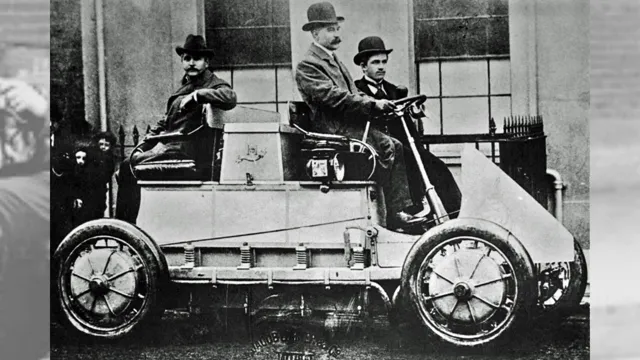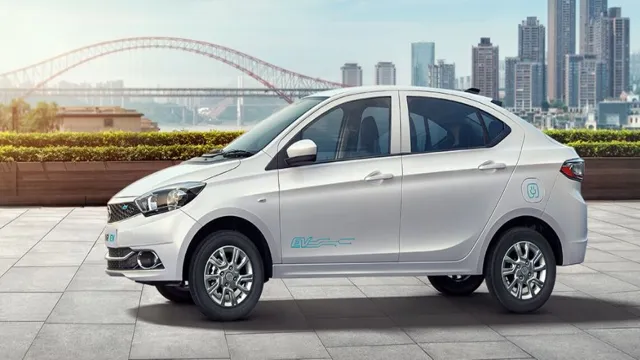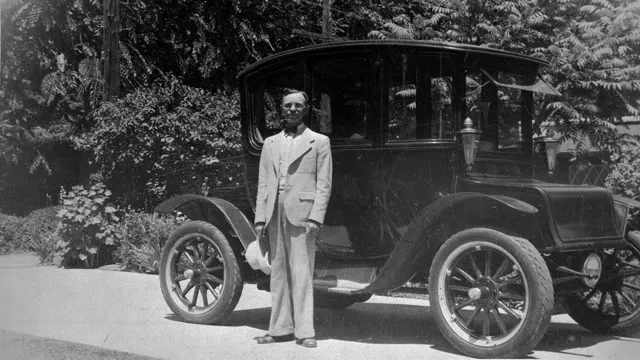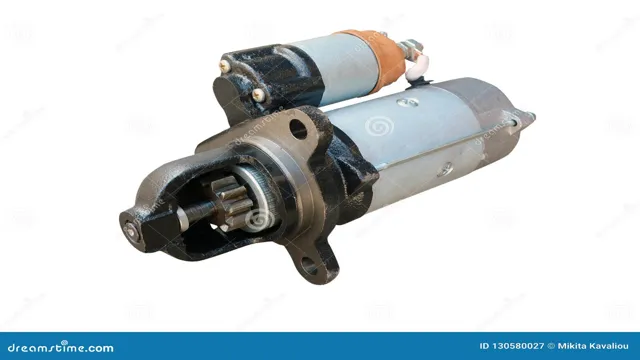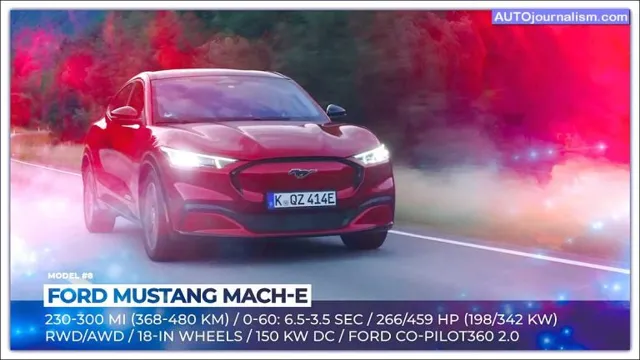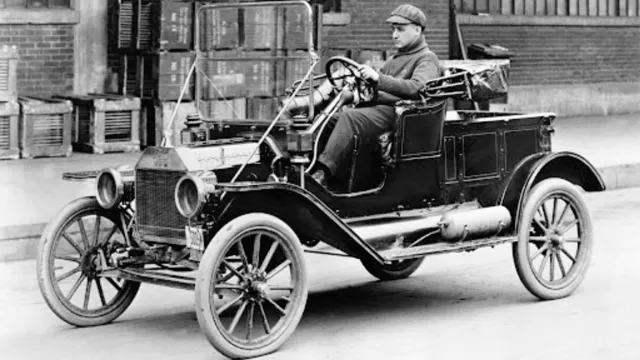Revolutionizing the Roads: A Historical Journey of Electric and Hybrid Cars
Electric and hybrid cars have become increasingly popular in recent years, but did you know that the history of these vehicles dates back over a century? From early electric car prototypes in the late 1800s to the modern mass-produced hybrids of today, the evolution of electric and hybrid cars is a fascinating journey filled with innovation, setbacks, and exciting breakthroughs. In this blog, we’ll take a deep dive into the fascinating history of electric and hybrid cars, exploring the key milestones and advancements that have led to the eco-friendly vehicles we know and love today. Get ready to learn about the fascinating pioneers of electric and hybrid car technology and the major events that have shaped the automotive industry over the past century.
Early Innovations
Electric and hybrid cars may seem like modern concepts, but they actually have roots that date back to the early 1800s. The first electric vehicle was built by Thomas Davenport in 1834, while Robert Anderson developed the first crude electric carriage in Scotland in the 1830s. However, the first successful electric car was created by English inventor Thomas Parker in 1884, which he used to drive on the streets of London.
Hybrid cars also have a rich history, with the first known hybrid vehicle created by Ferdinand Porsche in 189 The vehicle used a gasoline engine and an electric motor to power the car, which was quite revolutionary for its time. While electric and hybrid cars did not become mainstream until recent decades, their early innovations and developments set the foundation for today’s modern advancements in eco-friendly transportation.
The First Electric Car
The first electric car was invented way back in 1837, long before most people imagined vehicles powered by electricity. Robert Davidson, a Scottish inventor, is credited with building the first functional electric car. His design featured a direct current motor powered by a galvanic cell battery, capable of propelling the vehicle at a speed of four miles per hour.
While Davidson’s invention was ahead of its time, it paved the way for a new era of transportation and showed the potential of electric vehicles. Early innovations like the electric car were exciting and groundbreaking, and they opened the door for new discoveries and advancements that would revolutionize the world. Today, advancements in electric vehicle technology continue at a breakneck pace, and their widespread adoption is seen as a key component in the ongoing fight against climate change.
While it took nearly two centuries for the electric car to become a mainstream reality, we have Davidson’s pioneering spirit to thank for laying the foundation for the green automotive future we’re now heading towards.

The First Hybrid Car
The first hybrid car was an innovation in its time, combining the power of both gasoline and electricity in a single vehicle. This early hybrid, developed in 1899 by Belgian engineer Ferdinand Porsche, utilized an electric motor and batteries to supplement the internal combustion engine. While the technology was ahead of its time, it failed to gain widespread adoption due to limitations in battery technology and the high cost of production.
However, the concept of a vehicle that could combine the benefits of gasoline and electricity stuck around, eventually leading to the development of modern hybrid cars. Today, hybrid vehicles are a common sight on the road, offering improved fuel efficiency and reduced emissions compared to traditional gasoline-powered cars. The innovation introduced by Porsche’s early hybrid vehicle helped pave the way for a more sustainable future in the automotive industry.
Recent Advancements
Electric and hybrid cars have come a long way since their inception. While we often associate these vehicles with modern technology, they actually have a rich history that dates back over a century. In fact, the first electric car was built in 1837, and by the early 20th century, electric vehicles were a common sight on the roads.
However, the development of the combustion engine and the availability of cheap gasoline meant that electric cars fell out of favor for several decades. In recent years, electric and hybrid cars have seen an impressive renaissance. With advances in battery technology, electric cars are more efficient and have a longer range than ever before.
Meanwhile, hybrid technology has allowed for more efficient use of gasoline and a reduction in emissions. Additionally, the increasing availability of charging stations and government incentives have made these vehicles more accessible to consumers. But the advancements haven’t stopped there.
Electric and hybrid cars are quickly becoming more mainstream, with major auto manufacturers such as Tesla, Chevrolet, and Toyota rolling out new models each year. Moreover, research continues into new battery technologies that will further improve the efficiency and range of these vehicles. As we move towards a greener future, electric and hybrid cars are likely to become even more prevalent on our roads.
Tesla’s Impact on Electric Cars
Tesla has undoubtedly had a huge impact on the world of electric cars, and their recent advancements have only contributed to their influence. In particular, one of the most exciting developments has been the company’s new battery technology. This new battery not only has longer range than previous models but is also more durable and more affordable.
This means that the barriers to entry for electric car ownership are slowly decreasing, making it more accessible for the average consumer. Additionally, Tesla has been pioneering the use of self-driving technology, which could revolutionize the way we travel in the future. With all of these advancements, it’s clear that Tesla is at the forefront of the electric car industry and is driving innovation in this space.
The Rise of Hybrid SUVs
Hybrid SUVs have become increasingly popular in recent years due to their ability to provide greater efficiency and lower emissions while retaining the power and utility of traditional SUVs. Recent advancements in technology have made hybrid SUVs even more attractive to consumers, with longer battery life and improved acceleration and handling. Additionally, many models now offer a range of driving modes to optimize performance for different situations.
The rise of hybrid SUVs is a positive development for both the environment and consumers, as they offer a compelling combination of power, performance, and efficiency. Whether you’re looking for a vehicle that can handle off-road adventures or simply want a more sustainable mode of transportation, a hybrid SUV might be the right choice for you.
The Future of Electric and Hybrid Cars
Recent Advancements in the Future of Electric and Hybrid Cars Electric and hybrid cars have been around for a while now, but recent advancements have brought about significant changes in their functionality, range, and performance. One such advancement is the development of more efficient batteries, which enable electric cars to travel longer distances on a single charge. Moreover, charging times have also improved, with fast-charging stations now capable of charging an EV battery to 80% in less than an hour.
In terms of performance, electric and hybrid cars have become faster and more powerful, with some models boasting top speeds of over 200 mph and acceleration times of around 2 seconds. Another advancement is the integration of smart technology, which enhances the overall driving experience. For instance, some electric cars can be controlled using a smartphone, allowing owners to remotely monitor and control aspects such as charging, climate control, and security.
Overall, recent advancements have made electric and hybrid cars more practical and appealing to a wider range of consumers, ushering in a new era of sustainable transportation.
Environmental Impact
The history of electric and hybrid cars is one of innovation and progress. Beginning in the early 1900s, electric cars were popular for their quiet operation, but with the advent of the gasoline engine, they lost their foothold in the market. However, in the 1990s, the hybrid car emerged as a viable alternative, with the Toyota Prius leading the way.
Since then, electric cars have surged in popularity, with the Tesla brand pushing the boundaries of performance and range. From an environmental perspective, electric and hybrid cars are a game-changer. By significantly reducing emissions and dependence on fossil fuels, these vehicles are paving the way for a cleaner, brighter future.
As society becomes more environmentally conscious, the electric and hybrid car industry will continue to flourish, driving innovation and progress for years to come.
Reducing Emissions with Electric and Hybrid Cars
Electric and hybrid cars are becoming increasingly popular due to their positive impact on the environment. The use of such cars has considerably reduced carbon emissions and air pollution. As electric cars run solely on battery power, they emit zero exhaust fumes and do not emit carbon dioxide while driving.
This is a significant achievement considering that transportation is one of the primary contributors to greenhouse gas emissions. Hybrid cars also have a lower carbon footprint than gasoline based cars as they rely on a mixture of battery power and fuel. By replacing traditional cars with electric and hybrid cars, we can positively impact the environment by reducing the amount of carbon dioxide emitted into the atmosphere.
The shift towards electric and hybrid vehicles is a step in the right direction regarding saving our planet.
Green Energy and the Car Industry
When it comes to the car industry, the environmental impact is a concern for many. It’s no secret that traditional cars emit harmful gases that contribute to climate change and air pollution. This is why green energy is becoming an increasingly popular choice within the industry.
Green energy-powered vehicles run on renewable energy sources such as solar, wind, or hydropower. They offer a wide range of benefits, including reduced carbon emissions, improved energy efficiency, and a lower dependence on nonrenewable sources. The use of green energy is vital to protect the planet and reduce environmental damage.
With the rise of electric cars and renewable energy sources, the car industry is beginning to play a more significant role in the drive towards a sustainable future. By using sustainable energy sources, we can create a cleaner and safer world for ourselves and future generations. So let’s make a conscious effort towards green energy to save our planet!
Conclusion
In conclusion, the history of electric and hybrid cars is a rollercoaster ride of ups and downs, twists and turns, and fast-paced innovation. From the early stages of the electric vehicle’s invention, to the skepticism and eventual resurgence in popularity of the hybrid car, the industry has faced numerous challenges and breakthroughs. Today, the future is bright for electric and hybrid vehicles as they continue to evolve and revolutionize the automotive industry.
With advancements in technology and a growing concern for the environment, we can expect to see more and more electric and hybrid cars on the roads. So, hop in and buckle up for this exciting ride, as we continue to make history in the world of green transportation!”
FAQs
What was the first electric car and when was it invented?
The first electric car was invented in the 1820s by Ányos Jedlik, a Hungarian physicist.
When did hybrid cars become popular?
Hybrid cars started to become popular in the late 1990s and early 2000s, with the introduction of the Toyota Prius and Honda Insight.
What is the difference between a hybrid car and an electric car?
A hybrid car runs on both gasoline and electricity, while an electric car runs solely on electricity.
What are some benefits of electric and hybrid cars?
Electric and hybrid cars are more environmentally friendly than traditional gas-powered cars, as they produce lower emissions and use less fossil fuels. They also tend to have lower operating costs, as electricity is generally cheaper than gasoline.
